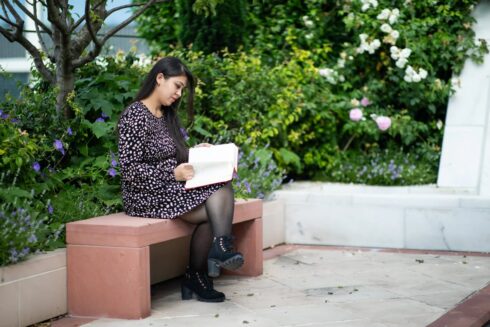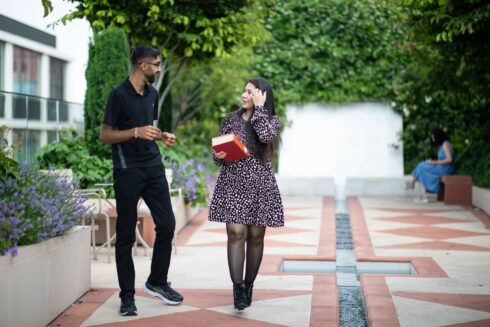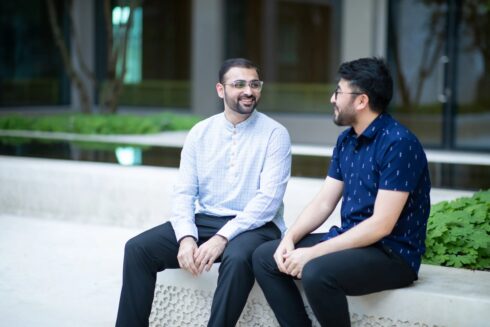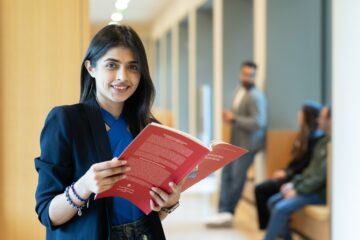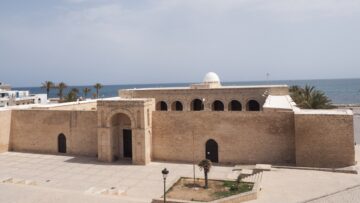Applications Closed
Graduate Programme in Islamic Studies and Humanities
-
Status
Closed -
Location
London -
Apply by
12 Jan 2026
Programme Aims
- To engender a critical yet sympathetic examination of many of the issues that contemporary Muslims face; from the debate amongst Muslim intellectuals regarding the re-examination of aspects of the Islamic heritage to the challenges contemporary Muslim societies face in their endeavour to modernise and develop.
- To emphasise the analytical frameworks and critiques of the social sciences and humanities as they apply (or fail to apply) to the study of the phenomenon of religion in all its aspects.
- To integrate pertinent disciplines – e.g. history, anthropology, political science, philosophical analysis, linguistic and literary criticism – in the study of Muslim societies in order to promote an approach in which the disciplines are intertwined at their roots, to produce an integrated analysis of the subject, conceived as broadly as possible.
- To adopt a civilisational approach to the study of Islam. This premise has implications for the treatment of the subject matter. Instead of conventional divisions such as theology, law and mysticism, representing distinct religious interpretations of Islam, the programme treats these and other issues in the common framework of a cultural history. This means, first, that religious developments will be seen as part of the development of thought and culture in Muslim societies. Secondly, those aspects of culture, like art, poetry and architecture, which are not always treated on a par with doctrine, law or religious practice, will be so regarded in this programme. Thirdly, as culture cannot be studied in isolation from society, the programme will treat this interrelationship (of ideas and meanings to social and political forces) as one of the keys to an integrated understanding of the subject.
There are four key areas in which you will develop:
- A civilisational understanding of Islam. Demonstrate a systematic advanced understanding and knowledge of Islam from a civilisational perspective.
- Critical awareness of key debates and thinkers. Demonstrate systematic knowledge and critical awareness of the key debates and thinkers (historical and contemporary) in the field of Islamic studies.
- Critical awareness of challenges in context. Demonstrate a critical awareness of challenges facing contemporary Muslim societies in their diverse historical, political and socio-economic contexts.
- Understanding methods. Demonstrate a systematic and comprehensive understanding of contemporary methodologies for the study of Islam in lived contexts.
- Making critical sense of materials. Critically assess data and evidence from primary and secondary sources, and solve conflicts of facts and interpretations commensurably with the level expected of Master’s graduates.
- Understanding materials critically. Employ critical and at times original approaches and question established knowledge on the basis of reasoned interpretations of sources and evidence.
- Integrating materials. Integrate findings from multiple sources in order to demonstrate and advance a critical understanding of topics under discussion.
Making and reflecting on conclusions. - Make reasonable and substantiated conclusions independently in the light of research undertaken and evidence reviewed and reflect on the implications of those and potential future directions.
- Finding materials. Locate relevant materials and gather research data and/or evidence responsibly and ethically for the purpose of exploring and understanding a topic and/or preparing for assessment.
- Interpreting materials. Summarise viewpoints and arguments from various sources of data and/or evidence, synthesising those where appropriate.
Integrating interpretive approaches. - Integrate skills and/or approaches from different disciplinary areas for the purpose of exploring and understanding a topic/subject area in comprehensive and, where possible, original ways.
- Self-assessment and refining work produced. Judging the merit of own work for the purpose of assessing its validity and appropriacy with regard to the subject matter, discipline and task at hand.
- Communication. Communicate knowledgeably and critically in writing and speaking for the purpose of disseminating and contributing to the production of knowledge and to enable active participation in events such as seminars, conferences and symposia where current subject knowledge and approaches are being disseminated and debated.
- Working independently. Demonstrate skills of research (finding and working with materials) and managing one’s own learning in the service of working independently and responsibly.
- Working with others. Work with others for the purpose of gathering and interpreting information, showing due regard for ethical considerations.


